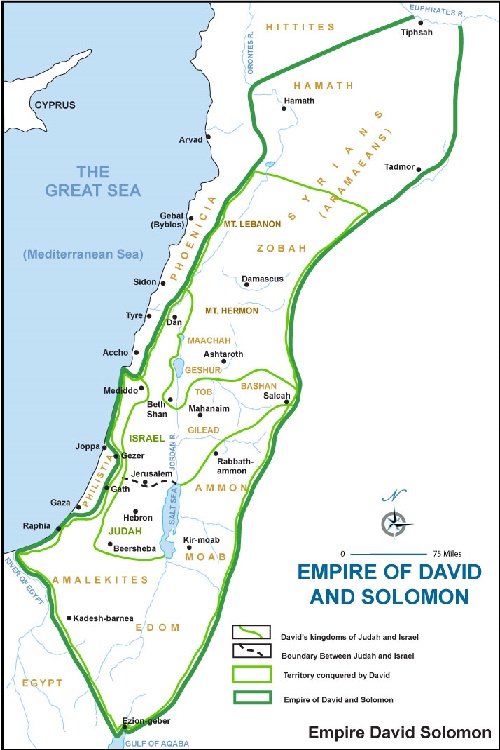1 Samuel 14:47:
47. After Saul had assumed rule over Israel, he fought against their enemies on every side: Moab, the Ammonites, Edom, the kings of Zobah, and the Philistines. Wherever he turned, he inflicted punishment on them.
2 Samuel 8:3-12: (also stated in 1 Chronicles 18:3-10)
3. Moreover, David fought Hadadezer son of Rehob, king of Zobah, when he went to restore his control along the Euphrates River.
4. David captured a thousand of his chariots, seven thousand charioteers and twenty thousand foot soldiers. He hamstrung all but a hundred of the chariot horses.
5. When the Arameans of Damascus came to help Hadadezer king of Zobah, David struck down twenty-two thousand of them.
6. He put garrisons in the Aramean kingdom of Damascus, and the Arameans became subject to him and brought tribute. The LORD gave David victory wherever he went.
7. David took the gold shields that belonged to the officers of Hadadezer and brought them to Jerusalem.
8. From Tebah and Berothai, towns that belonged to Hadadezer, King David took a great quantity of bronze.
9. When Tou king of Hamath heard that David had defeated the entire army of Hadadezer,
10. he sent his son Joram to King David to greet him and congratulate him on his victory in battle over Hadadezer, who had been at war with Tou. Joram brought with him articles of silver and gold and bronze.
11. King David dedicated these articles to the LORD, as he had done with the silver and gold from all the nations he had subdued:
12. Edom and Moab, the Ammonites and the Philistines, and Amalek. He also dedicated the plunder taken from Hadadezer son of Rehob, king of Zobah.
2 Samuel 10:6-8: (also see 1 Chronicles 19:6)
6. When the Ammonites realized that they had become a stench in David's nostrils, they hired twenty thousand Aramean foot soldiers from Beth Rehob and Zobah, as well as the king of Maacah with a thousand men, and also twelve thousand men from Tob.
7. On hearing this, David sent Joab out with the entire army of fighting men.
8. The Ammonites came out and drew up in battle formation at the entrance to their city gate, while the Arameans of Zobah and Rehob and the men of Tob and Maacah were by themselves in the open country.
From the time of Saul until Solomon's reign, the region of Zobah existed between Hamoth and Maacah (as part of Aram) in modern day Syria. Damascus was the best known city within this area. The first ruler of Zobah mentioned was Rehob who was succeeded by his son Hadadezer. One of David's "mighty men" was "Igal son of Nathan from Zobah" as stated in 2 Samuel 23:36.

1 Chronicles 18:8:
8. From Tebah and Cun, towns that belonged to Hadadezer, David took a great quantity of bronze, which Solomon used to make the bronze Sea, the pillars and various bronze articles.
The passage of Psalm 60 reads: "For the director of music. To the tune of "The Lily of the Covenant". A miktam of David. For teaching. When he fought Aram Naharaim and Aram Zobah and when Joab returned and struck down twelve thousand Edomites in the Valley of Salt.". (The Valley of Salt later became the Salt Sea or Dead Sea.)
1 Kings 11:23-24:
23. And God raised up against Solomon another adversary, Rezon son of Eliada, who had fled from his master, Hadadezer king of Zobah.
24. He gathered men around him and became the leader of a band of rebels when David destroyed the forces [of Zobah]; the rebels went to Damascus, where they settled and took control.